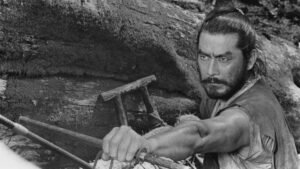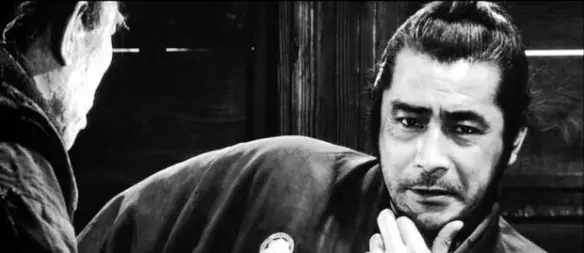Toshiro Mifune: Icon of Japanese Cinema
- By -Maria Mash
- Posted on
- Posted in Actors
Toshiro Mifune, born in 1920, is widely regarded as one of the most iconic figures in Japanese cinema. With a career spanning over five decades, Mifune’s contributions to film are both vast and influential. His dynamic performances, particularly in collaborations with director Akira Kurosawa, have left an indelible mark on the world of cinema. This article explores Toshiro Mifune’s legacy, his impact on Japanese cinema, and the elements that cement his status as a cinematic icon.

A Versatile Acting Talent
Toshiro Mifune’s versatility as an actor is a key factor in his enduring legacy. He is renowned for his ability to portray a wide range of characters, from samurai warriors to complex, conflicted individuals. Mifune’s performances are characterized by their intensity, emotional depth, and physicality, making him a standout actor in both Japanese and international cinema.
Moreover, Mifune’s talent for immersing himself in diverse roles is evident across his extensive filmography. His portrayals in films like “Rashomon,” “Seven Samurai,” and “Throne of Blood” showcase his remarkable range and ability to convey profound emotional and psychological depth. This versatility has contributed to his status as one of the greatest actors in film history.
Collaboration with Akira Kurosawa
One of the most significant aspects of Toshiro Mifune’s career is his collaboration with director Akira Kurosawa. The partnership between Mifune and Kurosawa is legendary, producing some of the most influential films in Japanese cinema. Their collaboration began with the film “Rashomon” (1950) and continued through numerous other works, including “Seven Samurai” (1954) and “Yojimbo” (1961).
Furthermore, Mifune’s performances in Kurosawa’s films are often cited as some of the finest examples of his craft. The chemistry between Mifune and Kurosawa resulted in a series of groundbreaking films that explored themes of honor, justice, and human nature. Their work together not only shaped the course of Japanese cinema but also garnered international acclaim, bringing Japanese film to a global audience.
Impact on Japanese and Global Cinema
Toshiro Mifune’s impact on both Japanese and global cinema is profound. In Japan, he is celebrated for his contributions to the samurai genre and for his role in defining the archetypal warrior hero. His performances helped to elevate Japanese cinema and established a new standard for acting within the genre.
Additionally, Mifune’s influence extends beyond Japanese cinema. His work has inspired filmmakers worldwide and has contributed to the global appreciation of Japanese film. Mifune’s performances have been recognized and praised by international critics and audiences, cementing his place in the pantheon of great actors.
Iconic Roles and Performances
Toshiro Mifune’s career is marked by a series of iconic roles that have become classics in the world of cinema. His portrayal of the samurai in “Seven Samurai,” the desperate protagonist in “Rashomon,” and the warrior in “Throne of Blood” are just a few examples of his memorable performances.
Moreover, Mifune’s ability to bring intensity and authenticity to his roles is a defining feature of his career. His performances are characterized by their physicality, emotional depth, and unwavering commitment to his characters. These qualities have made Mifune’s roles enduringly memorable and have solidified his reputation as an icon of Japanese cinema.
Enduring Legacy and Recognition
The legacy of Toshiro Mifune continues to be celebrated and recognized in contemporary cinema. His contributions to film are acknowledged through retrospectives, film festivals, and academic studies that explore his impact on acting and filmmaking.
In addition, Mifune’s influence is evident in the work of modern filmmakers who cite him as an inspiration. His innovative approach to acting and his collaborations with Akira Kurosawa have left a lasting imprint on the industry, ensuring that his legacy endures for future generations.
Conclusion
In summary, Toshiro Mifune stands as a towering figure in Japanese cinema, known for his remarkable versatility, iconic roles, and influential collaborations with director Akira Kurosawa. His contributions to film have shaped the landscape of Japanese cinema and have earned him a lasting place in the global cinematic community. As an enduring icon of acting and cinema, Mifune’s legacy continues to inspire and captivate audiences around the world.



